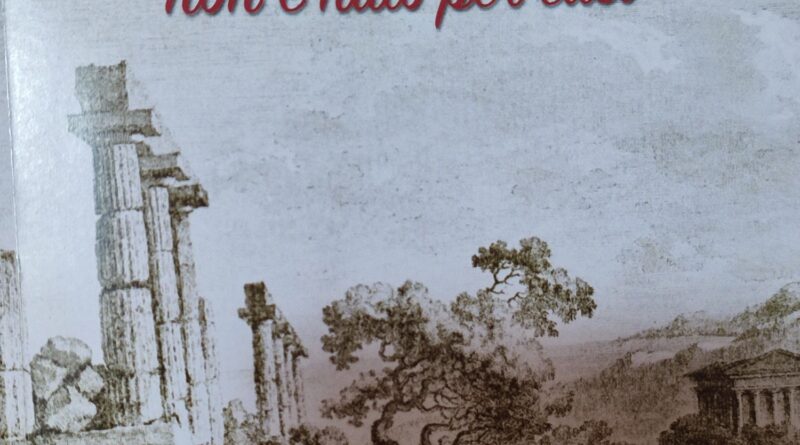Presentazione libro “Il Parco Archeologico Valle dei Templi non è nato per caso”
redazione
A distanza di 38 anni, Paolo Cilona, nostro collaboratore, con questo originale volume fa rivivere i ricordi, gli affanni, le ansie patite e sopportate per bloccare la cementificazione della Valle dei Templi e porre fine ad un paesaggio allora indegno del vivere civile, con cumuli di immondizia in ogni parte della Valle dei Templi. Da qui la sensibilità di rompere il profondo silenzio ponendo alla attenzione del mondo politico l’istituzione dell’Ente Parco Archeologico. La sua fu una battaglia rivolta alla tutela e alla salvaguardia dei luoghi del mito. Un’azione dirompente, una chiamata di responsabilità nei confronti principalmente di chi considerava i templi solo pietre di poco valore e che costituivano un ostacolo alla cementificazione della Valle. Erano gli anni del boom edilizio selvaggio, ma anche il tempo nel quale l’arbitrio e il ricorso alle deroghe costituivano la regola primaria del fare. La raccolta di firme prima e lo sciopero della fame dopo, costituirono le uniche opportunità di rottura, ovvero un urlo di dolore a fronte del silenzio generale che gravava sulla Valle e dell’indifferenza assoluta che accompagnava la proposta di creare un Ente per una gestione moderna, dinamica, innovativa a tutela del bacino archeologico, con l’obiettivo di accrescere sempre più l’immagine turistica e culturale della città di Agrigento. L’autore del libro riporta le riflessioni in ordine alle interrogazioni, ai disegni di legge, ai dibattiti, e alle varie posizioni delle forze politiche, sindacali, culturali che si susseguirono attorno all’istituzione dell’Ente Parco. Tutto iniziò il 25 ottobre 1985 con una nota di stampa e successivamente con lo sciopero che ebbe la forza di scuotere le coscienze della città e non solo. La stampa nazionale, regionale, le televisioni evidenziarono con ottimi servizi la fondatezza e la rilevanza della protesta. Seguirono anni di confronto e di scontro. Finalmente dopo quindici anni, la Regione Siciliana nel 2000 approvò la legge istitutiva del Parco archeologico e paesaggistico della Valle dei Templi di Agrigento con lo scopo di tutelare e valorizzare i beni archeologici, ambientali e paesaggistici. Tre anni prima l’Area archeologica di Agrigento era stata dichiarata dall’Unesco Patrimonio Culturale dell’Umanità. Secondo l’autore del libro troppe cose rimangono ancora dietro le quinte della storia agrigentina. Troppi personaggi ancora oggi ruotano attorno alla vicenda del Parco archeologico secondo le logiche della politica. Il libro è scrupolosamente documentato riportando tutte le stagioni del tempo proiettate nel futuro di Agrigento. Il libro sarà presentato giovedì 24 ottobre alle ore 16,30 presso il Museo archeologico Sala Fazello. Tra gli interventi programmati quelli dell’attuale direttore del Parco arch. Roberto Sciarratta, dall’archeologa Concetta Parello, dai due relatori prof. Gerlando Cilona e Diego Romeo. Testimonianze dei giornalisti della “La Sicilia” e “Giornale di Sicilia” Salvatore Fucà e Alfonso Bugea che seguirono le vicende della battaglia a favore della Valle dei Templi.

